Monk Airs Beef with Other Monk in Latest Gregorian Diss Chant
'Tis divinely savage
The monastic music community has been reeling since Brother Bertram released his latest Gregorian diss chant, airing beef with rival monk Brother Godfrey.
The diss chant gives new weight to this longstanding inter-cloister rivalry. Whilst both monks came up in the same abbey, their monasteries eventually split over differing interpretations of which types of chants sound the freshest. The split continues to this daye, and has only intensified over tyme.
The chant begins with Brother Bertram calling out not only Brother Godfrey’s paltry chanting ability, but also his tendency towards sin:
“Thy verses are pathetic,
Thy sinfulness disgusting.
I’m out here getting canonized
Whilst thou art out here lusting.
Thou mightest as well take a vow of silence,
For thine lyrics hint of ox dung.
Thou prob’ly believes in science,
For holy words don’t oft leave thy tongue.”
Some thinketh his harsh words may be a response to Brother Godfrey’s recent diss chant wherein he called for his rival to retire from monastic lyfe and hang up his robes:
“Thou couldn’t tell a hymn from Him,
I speaketh of the Lord.
I’ll cut thee limb from limb
With my Gregorian broadsword.
God holds thee not in such high favour
As he doth mineself.
Beeth a goode neighbour:
Hang thy habit on the shelf.”
But Brother Bertram fired right back with some brutal recitatives of his own, implying that Brother Godfrey’s prying eyes may have wandered to his colleague’s unclad bodie in the bathhouse:
“Ye other monks be playin’,
whilst I be out here prayin’.
My grasp of scripture is voluminous,
Thine is pea-like, it’s leguminous.
Thou shalt ne’er obtain absolution,
with thy lyrical pollution.
I caught thee spying on Brother Browne
disrobed in his ablution.”
The diss chant is also critical of Brother Godfrey’s lowly social status. He entered the brotherhood on merit alone, instead of through the preferred method of having prominent family connections and/or blackmailing the bishop.
“Thy confessions are embarrassing,
Thy social status is a joke.
Thine father eats cold turnips.
Mine dineth with the Pope.”
Wherefore shall this heavenly affray of vocals go next? Surely Brother Godfrey will be firing back in due course, and we much looketh forward to it!
Addendum: Ye Olde Diss Track
“Flyting,” or “the exchange of insults between two parties, often conducted in verse,” was a practice akin to rap battles that was around in 15th and 16th century Scotland. But the tradition probably goes back further than that and occurs in other places as well. There are examples of practices similar to flyting among the Norse gods, in Homer, in Beowulf, and in Shakespeare.
A good flyting could also be performed to entertain the royal court. One such example is The Flyting of Dunbar and Kennedie, which may have been a lyrical duel between William Dunbar and Walter Kennedy performed for the court of King James IV of Scotland.
Said Dunbar regarding Kennedy:
“Gray-visaged gallows-bird, out of your wits gone wild,
Loathsome and lousy, as wet as a cress,
Since you with worship would so fain be styled,
Hail, Monsignor! Your balls droop below your dress.”
Flyting is quite possibly the ancestor to the modern rap battle.
Fast forward to the 1700s. This meme made the rounds a few months back, so I decided to look into more.
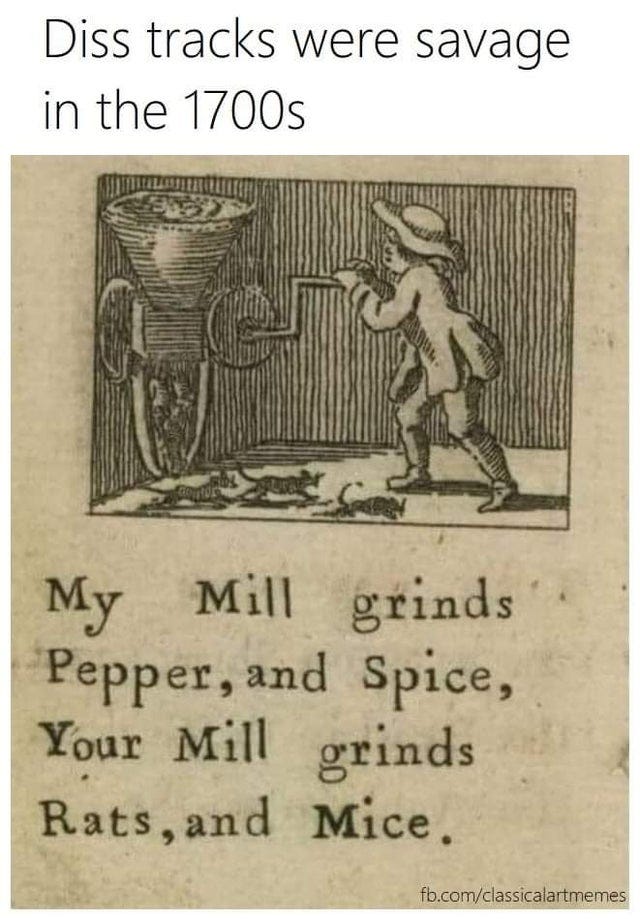
It reads:
My Mill grinds
Pepper, and Spice,
Your Mill grinds
Rats, and Mice.
It comes from Tommy Thumb’s Pretty Song Book (1744), the first anthology of English language nursery rhymes. This is the oldest existing version of many well-known nursery rhymes in print. A copy is held at the British Library. It is tiny:
Nursery rhymes were an oral tradition, so the author(s) are unknown. But the book was published by Mary Cooper, so it’s possible she had a hand in writing these down. Cooper is an interesting figure. In addition to being a successful woman in business during a time when women weren’t really allowed to do things, she was the first publisher of children’s books in English and, with her husband, also published erotic fiction.
This is the second of two volumes of Tommy Thumb’s Pretty Song Book. No copies of the first volume survived to the present day, so unfortunately we’ll never know what kind of savage diss tracks volume one may have contained. Here’s a few highlights from volume two (all from the British Library):



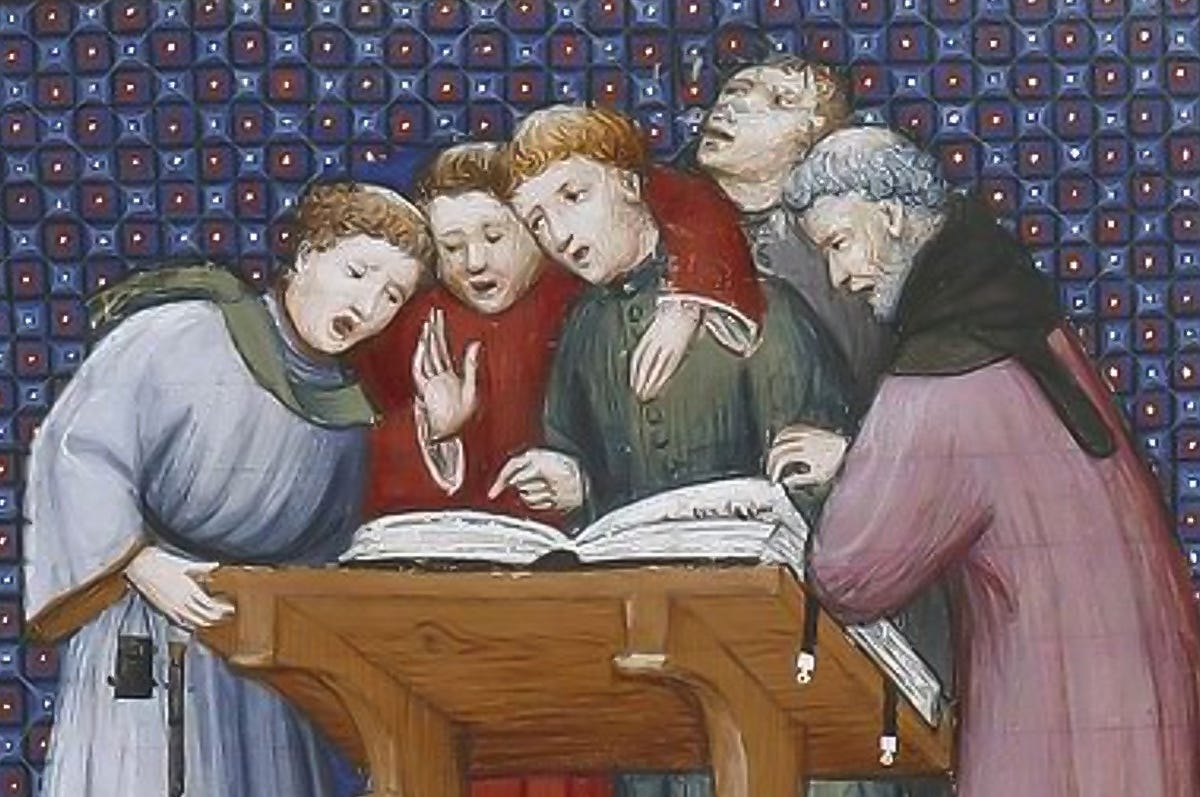

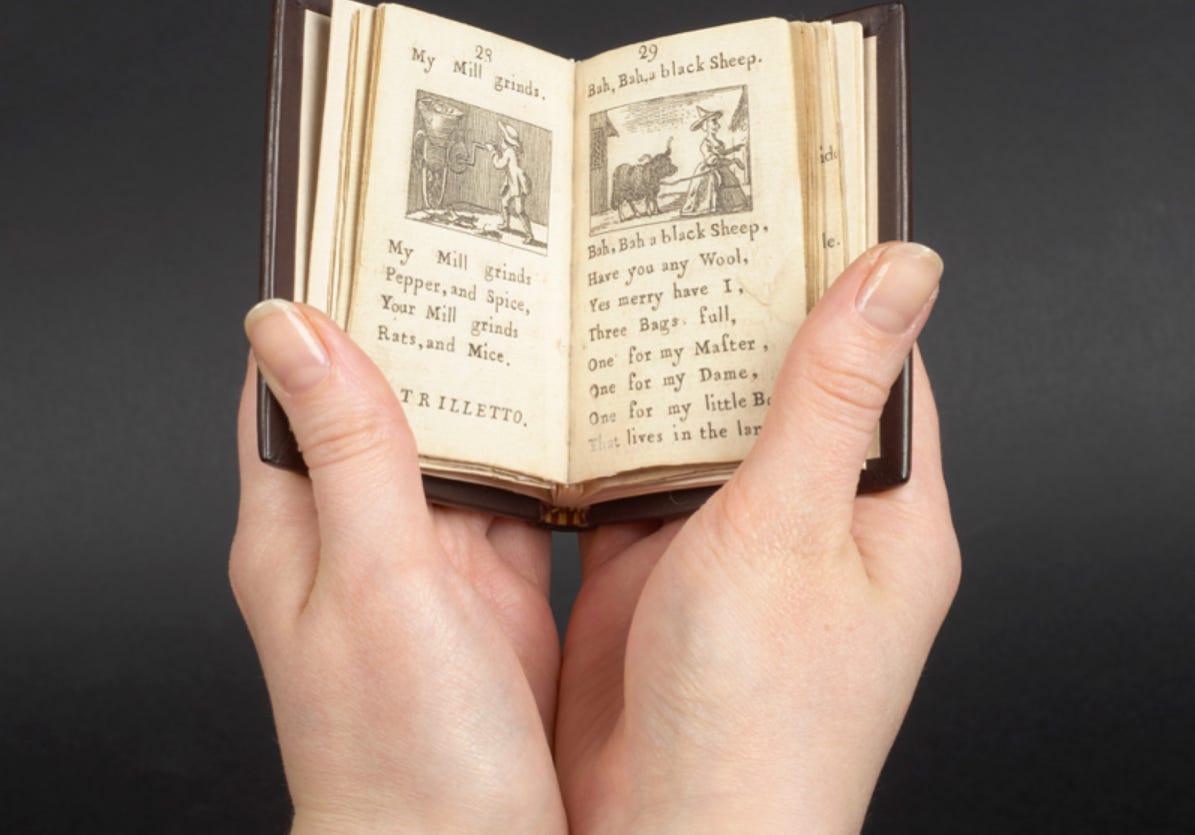

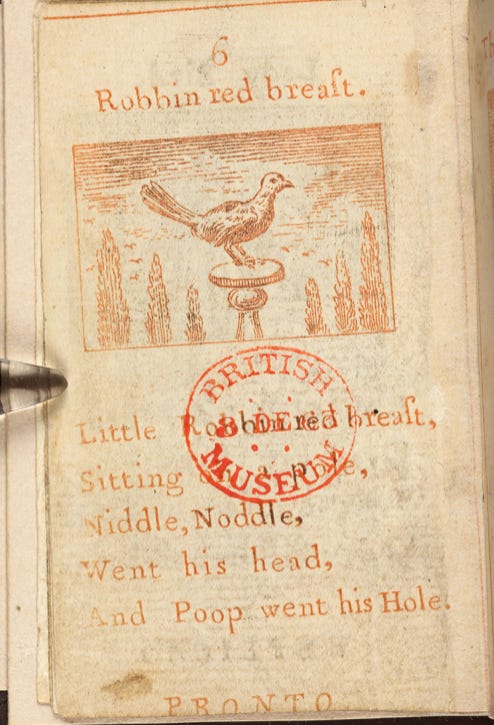
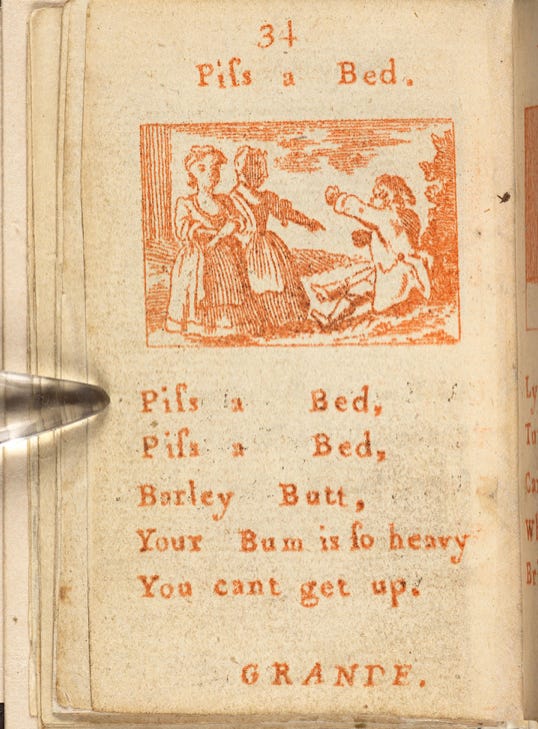

I loved this and the history lesson! I’m glad to know diss tracks are timeless 🤣
*snort giggle* Now I’m wondering if I can introduce a diss poetry battle into my series universe…